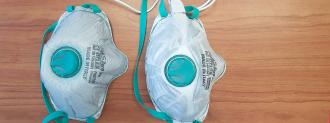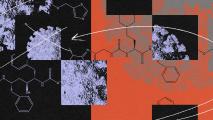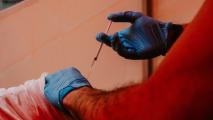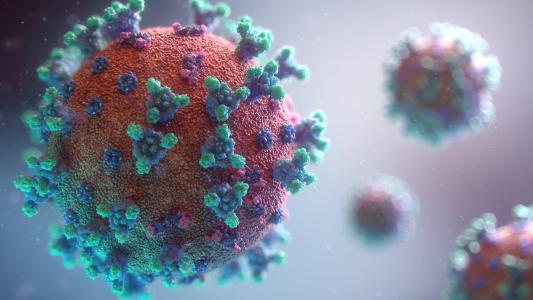Researchers are using electricity to upgrade the standard face mask, which has already proven to be one of our best weapons against the coronavirus.
While standard masks catch virus particles before they are breathed in, those viruses can still cause infections if the mask isn’t cleaned properly, or if someone touches a contaminated mask and then touches their own eyes, nose, or mouth before washing their hands.
But a mask made from an “electroceutical” fabric can damage or deactivate coronavirus particles that are caught in it, according to a new study, suggesting that an electric face mask made from the material could offer even better protection. (Don’t worry, there’s actually no electric current, so only the viruses will get zapped.)
Another group has created an electric face mask that kills any viruses on it when plugged into an outlet, making the disinfection process as easy as charging a smartphone.
Both masks are still in the development stages, but if either reaches the public, it could go a long way toward preventing new infections.
A Virus-Killing Electric Face Mask
Electroceuticals are devices that use electrical impulses to treat medical conditions — common examples include pacemakers and cochlear implants.
For years before the COVID-19 pandemic, “bioelectric” tech company Vomaris Innovations has been developing an electroceutical fabric that produces a weak electric field when moistened.
“You print certain metals, in this case silver and zinc, (on the textile) in a given geometric pattern,” Chandan K. Sen, director of the Indiana Center for Regenerative Medicine and Engineering, explained in a video. “The fabric does not have wire, the fabric does not have batteries, yet when it comes in contact with any aqueous solution that has ions in it, the fabric itself generates electricity.”
Vomaris had intended the fabric to be used as a wound dressing, but because coronaviruses also use electrostatic forces to infect cells, Sen’s team suspected that using the fabric to create an electric face mask could increase its protective abilities.
To test it, they exposed both Vomaris’s electroceutical fabric and a control fabric to a solution containing a respiratory coronavirus, similar to the virus that causes COVID-19.
After one minute, the ability of the coronavirus particles exposed to the electroceutical fabric to infect cells was “significantly lowered,” while particles exposed to the control fabric didn’t change, the researchers report in their paper, posted to the preprint server ChemRxiv.
“Our hope is that these findings will help Vomaris receive FDA Emergency Use Authorization,” Sen said in a press release, “and that we can utilize this fabric widely in the fight against COVID-19, ultimately saving lives.”
A Self-Cleaning Face Mask
Across the globe in Israel, a team at Technion’s Faculty of Materials Science and Engineering has unveiled its own take on the electric face mask.
This one features a layer of carbon fibers that can be heated to kill any viruses that remain on the mask after wear — all a person has to do is connect the mask to an electrical outlet or USB port using a mobile phone charger or similar device for about 30 minutes.
The Technion researchers have filed a patent in the U.S. for their electric face mask, and researcher Yair Ein-Eli estimates that the tech would increase the cost of a N95 mask by less than $1.
The CDC has already recommended the application of heat as one of the most effective ways to decontaminate a used face mask. The Technion mask would take the guesswork out of this process, heating the mask to just the right temperature needed to kill the coronavirus.
We’d love to hear from you! If you have a comment about this article or if you have a tip for a future Freethink story, please email us at [email protected].






